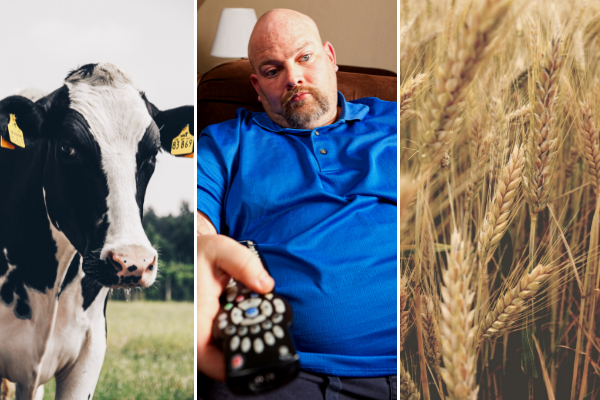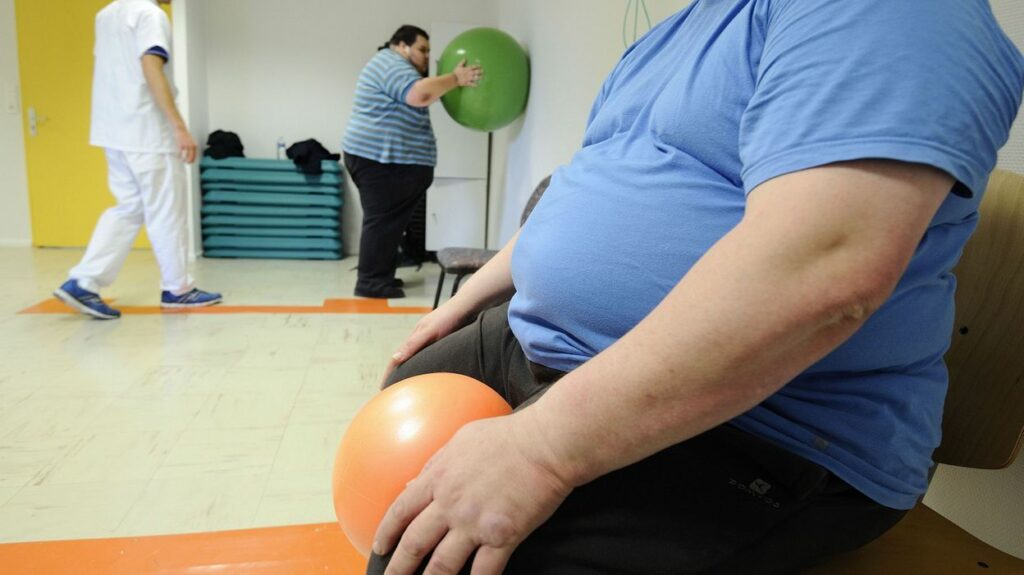Keeping in shape is a struggle at the best of times; throw in a pandemic and lifestyles that increasingly lend themselves to sitting in front of a screen and maintaining a healthy physique requires an almost contradictory effort to kick out against modern habit.
Hardly surprising then that Europeans are growing, well, larger. So much so, in fact, that being overweight has swelled to "epidemic" proportions, according to the WHO. And although the problem is particularly acute on the continent, waistlines around the world are bulging as diets include ever more processed foods with little nutritional value.
Besides the health concerns that come with piling on the pounds (among them the fact that overweight people were more susceptible to Covid-19), the cost to the environment is also becoming harder to ignore. As the world adopts an increasingly Western diet – in which meat accounts for an ever-larger portion of calories consumed – the resources needed to sustain this shift are, on a global scale, unsustainable.
The challenges of feeding world populations are now intensified as drought and conflict threaten grain production. Cereals form the basis of diets around the world but with the cost of wheat doubling in the last year, the threat of starvation is growing as well. The pandemic already led to 166 million people becoming chronically malnourished.
At the same time, just 23% of cereals produced within the EU are for human consumption; 62% are used to feed animals raised for human consumption. The disparity between the two underlines the gross inefficiency of our diet, quite apart from the fact that excessive consumption of meat (a category that a huge number of Europeans fall into) has been shown to be hugely unhealthy.
Of course, what we put into our bodies is an inherently personal decision, although the cost of food is often a determining factor for consumers rather than a product's sustainability. But whether for our health or the health of the planet, we can no longer afford to continue with the status quo.
Will you be making changes to your diet? Let @Orlando_tbt know.
Belgium in Brief is a free daily roundup of the top stories to get you through your lunch break conversations. To receive it straight to your inbox every day, sign up below:
1. De Croo calls for collective compensation as EU announces 6th package of sanctions
Belgium’s phasing-out of Russian oil must happen gradually, said Prime Minister Alexander De Croo on Wednesday in response to the 6th package of sanctions proposed by the European Commission. Read more.
2. WHO: 60% of Europeans overweight or obese
The waist sizes of Europeans are rapidly increasing, according to data from the World Health Organisation (WHO). Now, nearly 60% of the European population is overweight or obese. Read more.
3. AB InBev brings Ukrainian beer to Belgian market
Belgian brewing giant AB InBev, owner of major Belgian beer brands Stella Artois, Jupiler, and Leffe (among others), will soon introduce popular Ukrainian beer Chernigivske to the Belgian market, according to a company press release. Read more.
4. Call for donors: Belgium’s blood supply is alarmingly low
With the supply of nearly all blood groups at “critically low” levels, Belgium is in serious need of blood donations. Only the B+ blood group is in sufficient supply. Read more.
5. The Coudenberg Palace: Once the grandest seat in Europe
The Coudenberg Palace was once the grandest seat in Europe, the court of the continent’s most powerful figure. After a fire in 1731, it was flattened and covered, but its ruins can still be visited under the Place Royale. The Brussels Times tells the story of the glorious stronghold that once towered over the city. Read more.
6. Digitalisation to cut CO2 emissions by 10% by 2030
The increased digitalisation of four key sectors of Belgium’s economy (industry, construction, energy, mobility/logistics) will reduce the country’s CO2 emissions by at least 10% by 2030, according to the “Digital4Climate” study published by Belgian industrial federation Agoria. Read more.


